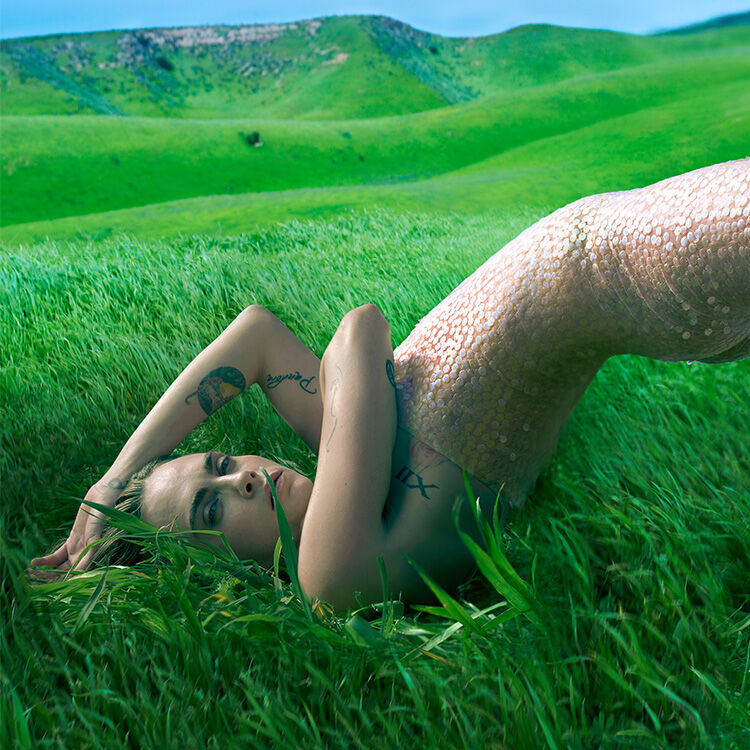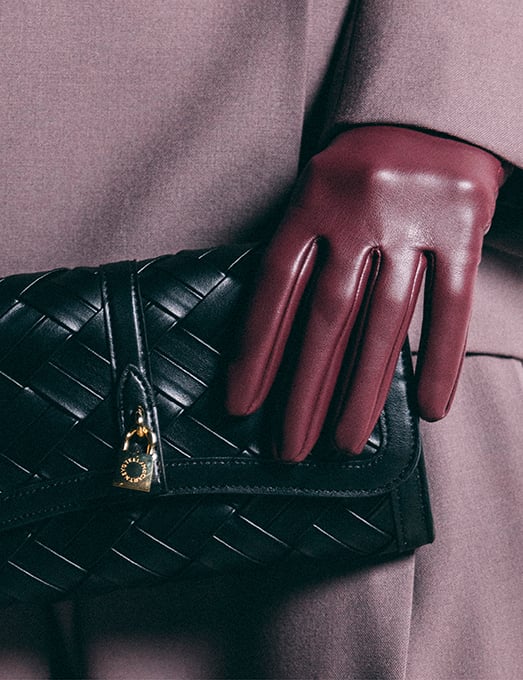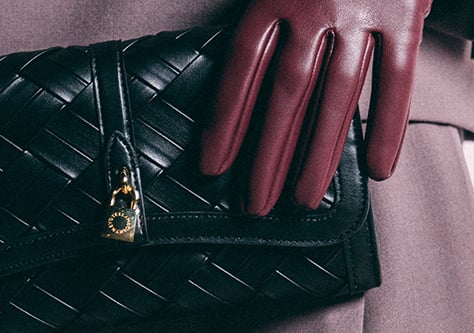Our first BioSequin® jumpsuit is in Vogue, worn by Cara Delevingne
Together with Radiant Matter, we proudly debuted the world’s first garment crafted from BioSequins in the April 2023 cover story of American Vogue – photographed by the legendary Annie Leibovitz on model, eco-activist and House friend Cara Delevingne.
Our exclusive sleeveless jumpsuit was carefully handmade at our London atelier, a closely fitting all-in-one that experimentally showcases our innate brand DNA. This BioSequin® jumpsuit is not yet commercially available, but showcases the potential of Radiant Matter’s material innovation in benefitting the health of people and planet.
BioSequins are plastic-free, biodegradable and non-toxic, innovated from plant-derived cellulose – using no metals, minerals or synthetic pigments or colourants.
It is so special to see how Stella McCartney has worked with our BioSequins to bring them to life on this beautiful jumpsuit. We have loved her uncompromising approach to sustainability and aesthetics, which are reflected in any decision, down to the fabric and thread choice, resulting in a stunning yet fully plant-derived garment. We are delighted to partner in creating this innovative piece and the opportunity to showcase it on American Vogue.
Every fabric that sparkles, glitters or has a reflective property contains a high percentage of petroleum plastic, toxic coatings or metallised parts. Conventional sequins are made of polyester film (Mylar) or vinyl (PVC), which cause particularly significant environmental and health risks – producing toxic, bio-accumulative chemicals, including carcinogens, such as phthalates and hormone disruptors.
I am amazed by the iridescent beauty of our BioSequin® all-in-one – handcrafted in my London atelier from plant-derived, non-toxic sequins that are even more stunning than conventional options. Who says sustainability can’t be sexy? Cara is breath-taking in this rare, precious garment and I am so grateful that Vogue has given us the platform to share it and inspire others to see the potential of a more conscious future of fashion.
The fashion industry as a whole continues to be one of the biggest contributors to the world’s plastic consumption problem. According to the United Nations, 70 million barrels of oil are used to make polyester and other synthetic fibres annually.
A study by Oxfam showed that British women purchase 33 million sequinned garments every festive season – with 1.7 million ending up in landfill, after only five wears. This moves from waste stores to waterways, with 35% of microplastics released into the world’s oceans coming from synthetic clothing (EEA).
We have proudly been a PVC-free brand since 2010. In our Stella vision, we hope to soon only use recycled, recyclable and biobased alternatives, creating a more conscious future of fashion.




